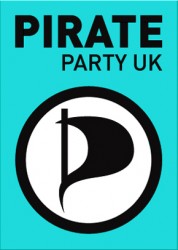Weekly News Roundup (16 August 2009)
I was going to apologise for this incredibly late WNR, but it turned out that I managed to get it done in time. Combinations of factors led me to believe that I wouldn’t be able to get this issue out in time, mostly due to my throat infection. 2009 hasn’t been a good year for me health wise, has it? The other reason is the odd bouts of electricity blackout that’s been happening around here due to the high winds overnight. Luckily, I have an UPS, and thanks to WordPress’s auto-save feature, at least I haven’t had to re-write passages of this WNR lost during the blackouts.
Some site related bit and pieces before we get to the WNR proper. In cooperation with Womble, I’ve launched a new Womble software sub-forum, in an effort to offer more support for their software. To go along with the new forum, I’ve also written a new guide on how to use Womble MPEG Video Wizard to make basic MPEG video edits. Having using MVW for a while, it’s a very handy piece of software and unlike many other pieces of software I’ve tried, it’s actually pretty quick, no bloat, and very stable.
The July 2009 US video games sales NPD analysis has been posted as well. And in case you’re wondering why being sick allowed me to write a guide *and* a blog post all in one week (I know, this sounds like way too much work compared to what I normally produce in a week), I only became violently ill several hours after posting the analysis. And no, the poor video game sales figures wasn’t the reason why I became sick. Anyway, onto the WNR.

Copyright news first. The New Zealand wing of the MPAA has urged the government to side step due process and hand down Internet bans as quickly as they can print out the banning order pre-made using MS Word templates or something even faster. Just another day in our bizzaro world where expediency in protecting billion dollar companies comes before justice and liberty. But then again justice and liberty don’t make monetary contributions to politicians.
Not too far away here in Australia, the government, possibly also acting under orders, I mean suggestions, from the music and movie lobby is trying to introduce a bill that will allow ISPs to spy on customers for copyright holders. The government says that’s not what the bill is intended for (it’s for terrorism, just like every law made since 2001), but that makes things even worse because that’s the government basically saying they’re coming up with a law in which they don’t know the full consequences of (or just don’t care). The bill, if passed in December, will make the US DMCA and the French three-strikes system seem restrained, almost anti-copyright, by comparison. The UK government is also planning on it’s own piracy crackdown, to label up to 7 million of it’s own citizens are criminals because they’ve downloaded some pirated stuff (or at least the copyright owners say so, but an IP address is hardly unique nor tamper proof). But at least the UK is getting it’s own Pirate Party, which if the government crackdown continues, could gain popularity very quickly.
Onto this week’s court actions. And there’s been lots happening, all bad news of course. Real Networks, defending it’s RealDVD software which adds more DRM to existing DVDs (but you do get to play it back on your computer without the disc), has suffered the first setback as the judge extended or continued the injuction currently placed on sale of the software. It just means that a full jury verdict will have to be handed down before the future of RealDVD is settled, and that the judge saw that the MPAA had enough evidence to proceed to trial. In the same week, there was another victory in court again innovation to protect the hardly working DVD DRM, known as CSS. The company at the center of the trial, Kaleidescape, originally won a trial that declared it’s hard-disk based DVD playback system completely legal (the system also plays DVDs without the original disc, and also adds more DRM to prevent unauthorised copying), has now lost an appeal that the DVD CCA bought forth against the original verdict. So that’s basically two products, one software and one hardware, neither of which defeats or circumvents the DVD CSS system, and I would be willing to bet that no one in their right mind has ever used to illegally copy DVDs (because RealDVD is not what people use to rip DVDs on computers, and people who can afford the multi-thousand dollar Kaleidescape system usually buy their movies) – but both may be deemed illegal just because the copyright holders don’t like innovation (or may even be coming up with their own products like managed copy, and these competitors are standing in their way).
And of course, piracy goes on, gains more popularity, while the lawyers, like the ones suing 10,000 South Koreans for sharing pirated porn, get richer. The US DOJ has also made a statement on the obscene $1.92 million damages handed down against a single mother Jammie Thomas-Rasset, saying that in their opinion, it’s perfectly constitutional. This is the same DOJ whose associate deputy attorney general was one of the lawyers representing the RIAA in Thomas-Rasset case, and loaded with many other ex-RIAA lawyers. You would at least understand the music and movie industry’s actions if they were working, but they are not, and may in fact be encouraging more people to pirates music and movies. I’ve always said the best way to combat piracy is to provide legitimate alternatives, and a recent study of UK youngsters seem to back up this opinion. The survey found that people want to pay for music, but only if it doesn’t have DRM, and is based on a subscription based “all you can eat” model, with a monthly fee and unlimited downloads (or some reasonable limits). 85% of those surveyed were willing to pay for this service, and 40% said that they would stop pirating altogether if such a service existed. And yet all we see are more lawsuits aimed at the very same people who are willing to pay, all because copyright holders are afraid of change.

In HD news, Toshiba has finally confirmed what has been rumoured for a while, that they will get into the Blu-ray business. It was also unlikely that Toshiba would not produce a Blu-ray player when their target is to gain a foothold in the home electronics market, as well as their active participation in the laptop arena. However, they also (perhaps bitterly) referred to Blu-ray as only a small part of their HD strategy, one that also covers SD (flash memory) distribution and downloads. Toshiba’s first Blu-ray players might be here this year (probably next year though), and I wouldn’t be surprised to see it have both SD playback and streaming capabilities (as well as outstanding DVD upscaling thanks to the Cell powered machines).
![]()
Not much happening in gaming, except that Sony will probably officially announce a price cut and the new PS3 Slim anytime now. Or not. But if this turns out to be a hoax, then it’s one of the best staged ones I can remember, so I’m putting my money on the rumours being real.
If you’ve read my July 2009 NPD analysis, you’ll know how badly Sony is struggling at the moment, with the PS3 barely outselling the PS2, which itself has dropped massively in sales over the last year. While the Wii hasn’t done much better in July either, the Xbox 360 continued strong sales (or rather, not-as-weak-as-the-others sales). So a price cut, and a new SKU, may be exactly what Sony needs and while I don’t really think a new SKU is necessary considering how much more “cooler” the PS3 already is compared to the Xbox 360, the price cut if key here (and if the slim model was the only reason the price cut was possible, then you do wonder why there isn’t a Xbox 360 Slim, as Microsoft needs a cooler console, in more than one sense of the word, than Sony).
The fall in Wii sales may suggest either saturation has been reached, or that a price cut may also be needed for it to remain competitive (it is still the only console to not have had a price cut or more added features since launch).
That’s it for this week. Back to bed rest for me until I recover from this nasty infection. See you next week.


